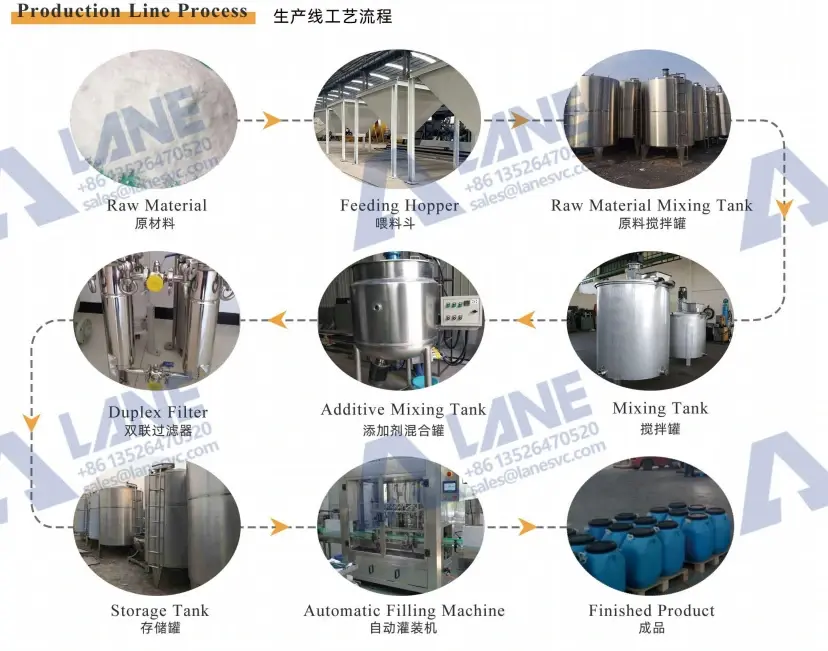Liquid Fertilizer for Forestry
- Efat Elahi
- Oct 17, 2025
- 3 min read
As global awareness of sustainable forest management grows, liquid fertilizer for forestry has become an increasingly valuable solution for improving soil fertility and enhancing tree growth. Forestry operations—ranging from timber plantations to reforestation projects—require efficient nutrient management systems that promote long-term soil health without damaging the surrounding ecosystem. Liquid fertilizers provide precisely that: an easily absorbable, evenly distributed nutrient source suitable for large-scale forest applications.

Understanding Liquid Fertilizer in Forestry
Liquid fertilizer production line is a nutrient-rich solution that contains essential macro and micronutrients, often derived from organic materials such as compost extracts, amino acids, humic acid, or even fermented plant and animal residues. Unlike traditional granular fertilizers, liquid fertilizer penetrates the soil quickly, delivering nutrients directly to the root zone. This efficiency makes it especially valuable in forestry, where vast tracts of land make uniform nutrient application difficult.
Forestry soils often face challenges like nutrient depletion, soil compaction, and low organic matter. Using liquid fertilizer helps overcome these issues by improving soil structure, promoting microbial activity, and supporting consistent root development across the plantation.
Why Forestry Benefits from Liquid Fertilizer
Faster Nutrient Absorption – Liquid fertilizer dissolves easily and is absorbed rapidly by tree roots and foliage, providing an immediate nutritional boost.
Uniform Coverage – Spraying or drip-feeding ensures even distribution of nutrients across uneven terrain or dense plantations.
Improved Soil Health – Many liquid fertilizers include humic or fulvic acids that enhance soil microbial life and organic content.
Sustainability – When made from organic sources, liquid fertilizers reduce chemical runoff and are safer for wildlife and water systems.
Adaptability – Suitable for use in nurseries, reforestation projects, or mature timber stands, depending on the nutrient formulation.
Production of Liquid Fertilizer for Forestry
The process of producing liquid fertilizer for forestry often involves several steps and specialized equipment:
Raw Material Collection: Organic waste such as crop residues, animal manure, or fish byproducts can serve as the foundation.
Fermentation Tanks: These are used for anaerobic or aerobic fermentation to break down organic matter and release plant-available nutrients.
Filtration System: Removes impurities and solid residues to ensure a consistent liquid texture.
Mixing and Nutrient Adjustment Tanks: Additional nutrients like nitrogen, phosphorus, potassium, or trace elements are added in controlled proportions.
Storage and Packaging Units: The final fertilizer is stored in sealed containers or barrels, ready for distribution. It can also be packaged using a liquid packaging machine.
LANE, for example, provides complete liquid fertilizer production lines that include fermentation tanks, mixing systems, filtration units, and automatic packaging equipment. These systems can process organic materials efficiently, allowing forestry operations to produce high-quality liquid fertilizer locally.

Application in Forestry
Liquid fertilizer can be applied through several methods:
Foliar Spraying – Ideal for young saplings or nurseries where quick nutrient uptake is required.
Soil Drenching – Applied at the base of trees to reach the root zone directly.
Irrigation Integration – Drip or sprinkler systems can distribute nutrients evenly over large areas.
Aerial Application – In extensive forestry operations, aircraft or drones may be used for efficient coverage.
Regular application supports faster seedling growth, increases biomass production, and improves the overall resilience of forests to drought and pests.
The Future of Forestry Fertilization
As climate change and deforestation challenge the stability of global ecosystems, liquid fertilizer for forestry is expected to play a major role in sustainable reforestation and carbon sequestration efforts. By enabling trees to grow faster and healthier while maintaining soil vitality, liquid fertilizers contribute not only to the productivity of forestry enterprises but also to the restoration of ecological balance.
Companies like LANE Heavy Industry continue to develop advanced organic liquid fertilizer production equipment that meets the unique demands of forestry projects around the world—from small nurseries to national afforestation programs. With flexible system design, local material adaptability, and efficient automation, such technology supports the global goal of greener, healthier forests.

Email: sales@lanesvc.com
Contact number: +86 13526470520
Whatsapp: +86 13526470520






Comments